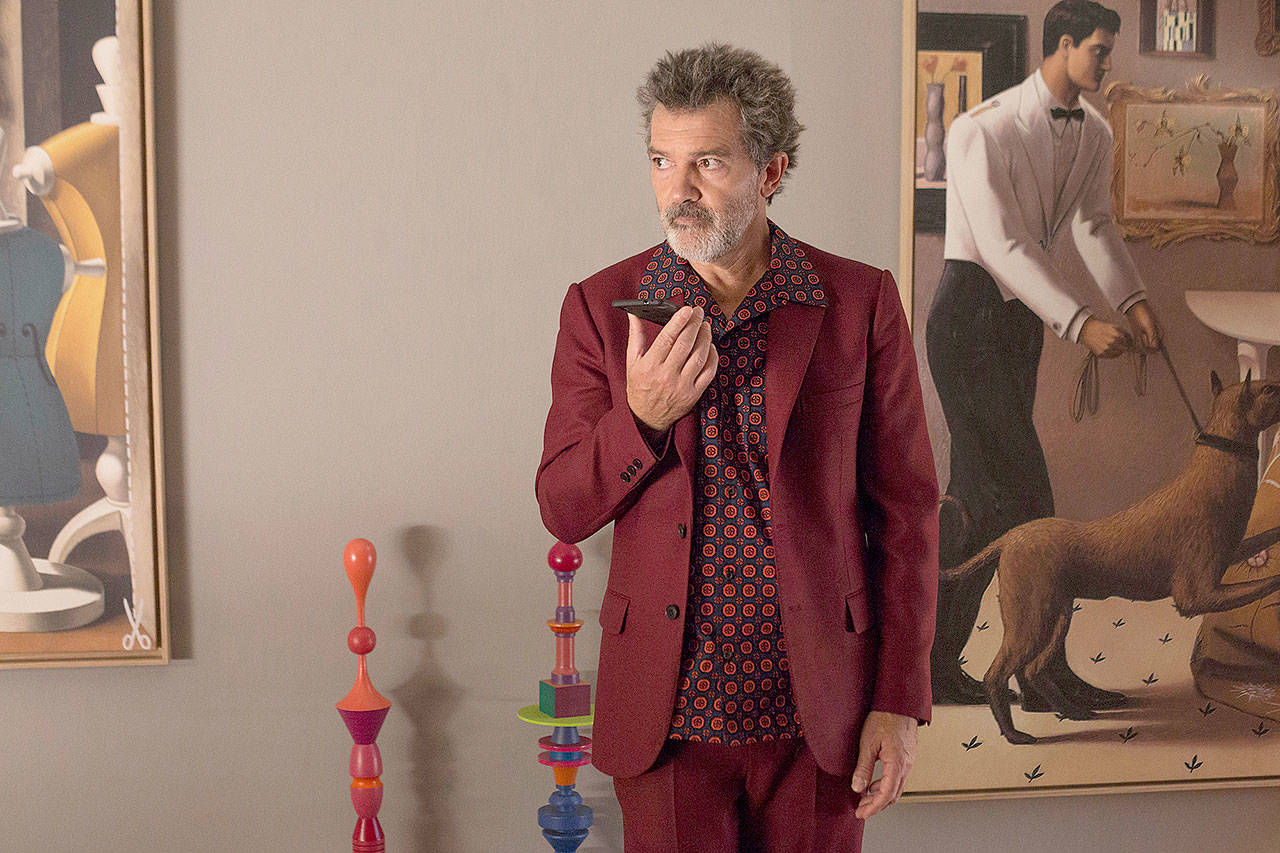An aged mother looks at her son, a famous movie director, as she pours out her heart to him. “Don’t put this in one of your films,” she warns.
Too late — the scene is here in Pedro Almodovar’s “Pain and Glory,” despite the mother’s request. Because the movie is about the way real life keeps intruding in an artist’s work, it makes sense that a mother’s wish is blatantly denied.
By consensus one of the world’s great living filmmakers, Pedro Almodovar has usually brought a youthful zest to his work. And yet he is now 70, and in “Pain and Glory,” he’s feeling his age.
The movie director in the film is Salvador Mallo, currently gripped by writer’s block. We can assume he is a surrogate for Almodovar himself, especially because he’s played by Antonio Banderas, whose work with Almodovar stretches back to 1982.
In his creative crisis, Salvador finds aspects of his past gradually returning. “Pain and Glory” is loosely arranged around three such stories.
One is his rekindled friendship with an actor (Asier Exteandia) he’s been estranged from for years. This leads to a flirtation with heroin — Salvador is in so much pain from his various ailments, he’ll try anything to get comfortable.
Another ghost from the past arrives in the form of an old boyfriend, who recognizes himself in one of Salvador’s stories. Their self-contained encounter suggests that the great passions of youth might be resolved — after the mellowing of time — with something like a shrug.
We also flash back to Salvador’s boyhood, and an early crush. In an extended cameo, Penelope Cruz plays his mother as a young woman, bearing the hardships of a modest existence in a small town.
In these scenes we see Salvador’s father, but only briefly. His absence seems a notable omission, since the other stories are about Salvador latching on to a male figure in hopes of connection.
The film is, by its nature, episodic. But it has a quiet, slow-burning power, and like all of Almodovar’s films, it looks gorgeous: drenched in eye-popping yellows and greens, set in stylish locations (evidently Salvador’s Madrid apartment is an exact replica of Almodovar’s pad).
It sounds serious, and it is, but there’s always something witty going on. The sneaky humor is nimbly conveyed by Banderas, who gives one of his best performances (he won the Best Actor award at the Cannes Film Festival).
In his Hollywood career, Banderas tapped his manic energy. All that gets bottled in here, as Salvador tends to watch and reflect, an artist observing everything around him, saving everything for future use. “Pain and Glory” is like an artist’s notebook, sketched with a master’s easy touch — and those vivid colors.
“Pain and Glory” (3½ stars)
A film director (Antonio Banderas) suffers creative block while ghosts from his past return. This gorgeously-designed film by Pedro Almodovar is typically thoughtful and witty, especially in the way it suggests how age modifies old passions. With Penelope Cruz. In Spanish, with English subtitles.
Rating: R, for nudity, subject matter
Opening Friday: Alderwood Mall, Egyptian
Talk to us
> Give us your news tips.
> Send us a letter to the editor.
> More Herald contact information.

























